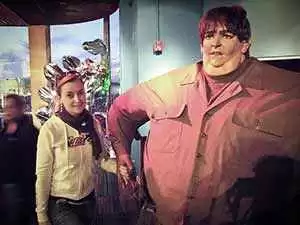
Celiac.com 03/04/2013 - Morbid obesity is a common medical condition. In many cases, bariatric surgery is necessary. Although for decades celiac disease has been associated with chronic diarrhea and weight loss, and other classic symptoms, recent data shows that the clinical spectrum of celiac disease is extremely wide.
A group of researchers recently reported on the benefits of diagnosing celiac disease during pre-operative work-up for bariatric surgery.
Celiac.com Sponsor (A12):
The researchers included Federico Cuenca-Abente, Fabio Nachman, and Julio C. Bai of the Department of Surgery and Department of Medicine at Dr C. Bonorino Udaondo Gastroenterology Hospital in Buenos Aires, Argentina.
They reported on the cases of five morbidly obese patients diagnosed with celiac disease during preoperative work-up for bariatric surgery. Celiac disease was suspected upon routine upper endoscopy, and confirmed by histology and positive celiac disease-specific blood tests.
Interestingly, four of the five patients had no obvious symptoms. One complained of chronic diarrhea and anemia. All patients began a gluten-free diet. Due to their celiac disease diagnosis, doctors offered all five patients a purely restrictive bariatric procedure. At the time of the report, three of the patients had received a sleeve gastrectomy, while the other two were still undergoing pre-operative evaluation.
The team's findings help to enlarge the clinical spectrum of untreated celiac disease. Even though rates of celiac disease in obese patients seems to be similar to that in the general population, the team recommends that patients with morbid obesity be tested for celiac disease in order to determine the best surgical strategy and outcome.
Source:
- Open Original Shared Link







Recommended Comments